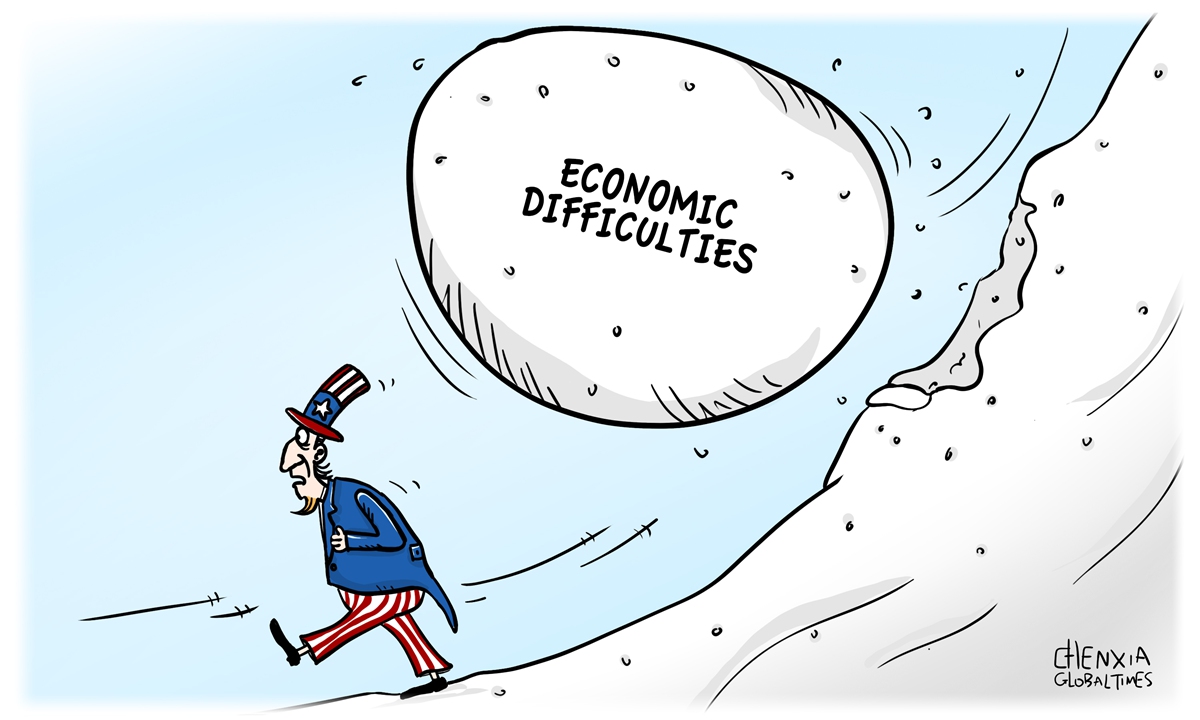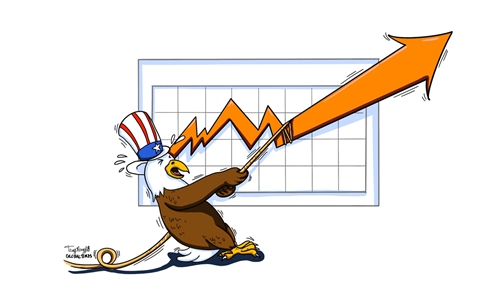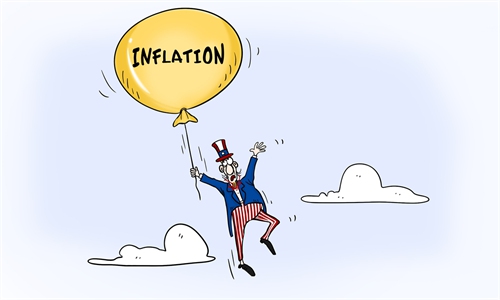
US economy Illustration: Chen Xia/Global Times
The US on Wednesday released their latest inflation figure for October, as the CPI surged 6.2 percent from the previous year, the biggest increase in 31 years - which is sure to add rising pressure on the White House and the US Federal Reserve.
However, some US media outlets are only focusing on China's price rises. China's CPI rose 1.5 percent in October. As a matter of fact, many in China and other countries, particularly the US' neighbors, are concerned about a spill-over effect from flying inflation levels in the world's largest economy.
After China published its Producer Price Index for October, which jumped 13.5 percent from a year earlier in October, the fastest pace in 26 years, a CNN report interpreted the soaring factory gate inflation will help "fuel upward pressure on global inflation," given China's role as one of the world's manufacturing centers.
While it is true that China's production inflation is rising, the main cause leading to rising cost of factories is the meteoric increase in prices of oil, ore, and other basic materials in the world. And, the unprecedented quantitative easing - money printing - by the US Federal Reserve since early 2020 is the culprit to steep price climb of the materials.
Therefore, the suggestion that China is exporting inflation is false and misleading. In fact, the Chinese government has taken targeted measures to bring down prices at the factory gate, by giving Chinese enterprises considerable tax and fee reductions.
If one takes a close look at China's consumer prices, it's clear that the country's price pressure for its consumers is much less concerning than that of other major countries, in particularly the US. China's consumer price index jumped 1.5 percent in October from a year earlier, quickening from September's 0.7 percent rise, but remaining at a relatively low level.
By comparison, the elevated US inflationary pressure is a more pressing and disturbing issue for the global economy. Its consumer price index for October rose 6.2 percent from a year ago, the highest since December 1990, while the core rate, excluding food and energy, stood at 4.6 percent, the highest since 1990.
The inflation is spiraling upwards so quickly that even US President Joe Biden admitted in a statement on Wednesday that "Inflation hurts Americans pocketbooks, and reversing this trend is a top priority" for him and his administration.
Compared with China's central bank, the US Federal Reserve has been too generous in injecting hundreds of billions of liquidity into the market, fueling a perilous round of price hike that is now a prime threat to the US economy. And, the spillover effect has emerged, as Euro-zone inflation grew to 4.1 percent in October, the highest level in more than a decade.
What's even worse, there seems no good solution to ease inflation in the US. If the Fed started raising interest rates to curb inflation, it may cause a sharp slowdown of the country's economy, and the world's financial markets, the Wall Street in particular, could be pummeled.



